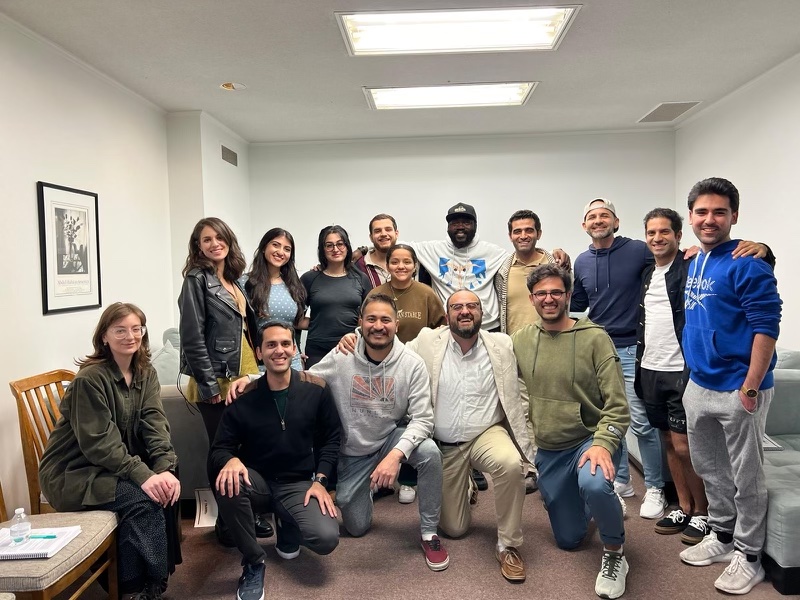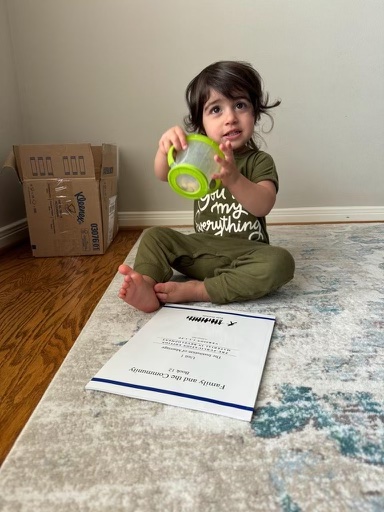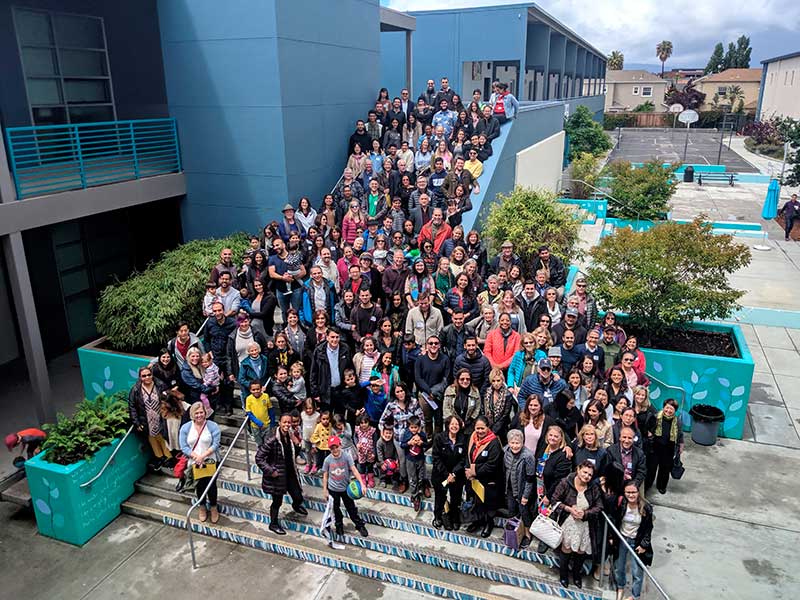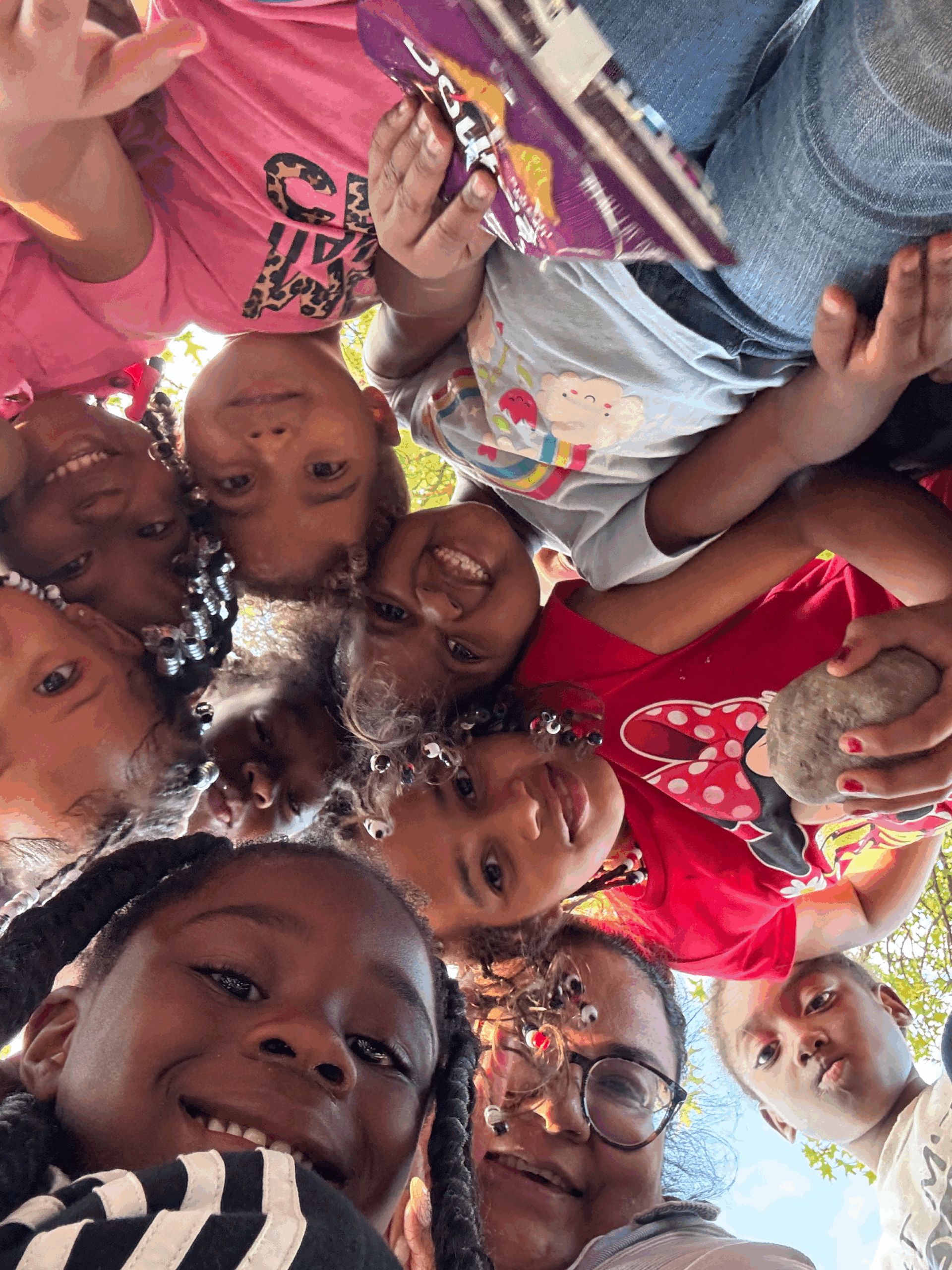
Family and community: Reflections on Book 12 in Houston

The Ruhi Institute, a global educational program, offers a sequence of courses designed to build spiritual capacity and promote community development. Among these courses, Book 12: Family and the Community focuses on the essential role of the family in fostering a cohesive and spiritually vibrant community. Book 12 explores themes such as unity, consultation, and fostering a vibrant marriage—the fundamental unit of society.
In Houston, participants have engaged deeply with Book 12, finding it impactful in their personal and communal lives. Here are reflections from four participants, highlighting their experiences and insights gained from studying Book 12.
Borhan Amin
Amin, a 23-year-old dental student who recently moved to San Antonio, shares his experiences studying Book 12 in Houston as an unmarried person. He has studied Unit 1: On Marriage and Unit 2: Family Life a few times, on Zoom, in a large youth study circle, and more informally with friends. He says the course deepened his understanding of the role of family in the community and reshaped his notions around true love.
“It addresses misconceptions about love, like the idea that love is blind or that you fall in love instantly. Instead, it takes you back to the [Baha’i] Writings, asking what true love is.”
Amin says he revisits the contents of Book 12 often. He appreciates when the concepts naturally come up in conversations with friends in the community. “We have a wonderful tool [with the Institute] outside of just the study circle, we continue to go back and reflect on all ideas in the Ruhi books,” he says.
Amin describes a local couple with two children, serving in their neighborhood children’s classes and junior youth group. “They’re always communicating, splitting roles,” Amin explains. “One works and then goes to the neighborhood while the other takes care of the children. Another day, they switch. Sometimes, they all go together. At night, they review sections of Book 12, studying and applying those qualities,” he says.
Amin also discusses the importance of balancing service activities with family responsibilities and the need for spouses to address these challenges together. He mentions that this awareness and joint reflection have benefited couples he knows.
Considering the friendships he nurtures in his life, Amin recites this quotation from Baha’u’llah he studied in Book 12:
“Commit not that which defileth the limpid stream of love or destroyeth the sweet fragrance of friendship. By the righteousness of the Lord! Ye were created to show love one to another and not perversity and rancor. Take pride not in love for yourselves but in love for your fellow-creatures.”
Sarah Chimino
Chimino is a mother of two. She shares about the study circle held at her home, where youth and adults came together to study Book 12. “We had a really vibrant group, with people aged 17 to 40. It was the thing to do on Saturday nights,” she says. She emphasizes the inclusivity and relatability of the course, noting how friends of the Faith also participated, enriching the experience.
Hosting the study circle at her house also taught Chimino’s children about the joy of serving others, reinforcing the themes of family and community central to the book’s content.
“They were here, learning and having deep conversations,” she recalls. Her son Shaafi, who was 3 at the time, became enthusiastic about serving the guests. “We’d give him a plate of cookies or ice cream, and he’d go and offer them to everyone. He loved it and looked forward to people coming over every Saturday night.”

Chimino says her son’s experience fostered within him a sense of pride and desire to serve, adding, “It was really cute to see different generations and how he could be of service to this group.” This early exposure had a lasting impact on Shaafi and highlights how family and neighborhood activities can intertwine to nurture spiritual growth and a sense of responsibility in even the youngest community members.
Chimino also reflects on the connection between Book 3: Teaching Children’s Classes and Book 12, noting how both emphasize the importance of education and the role of parents. “In Book 3, we’re learning about grade one, two, and so on. So I was really happy that [Book 12] has come out. It’s something that we can study and supplement as children’s class teachers with parents,” she explains. “Many parents feel it’s someone else’s job to educate their children, but Book 12 reinforces that parents are the best and first teachers of their children. Parents need to be the protagonists of teaching [their children].”
Chimino describes the practical application of these teachings in her marriage. “Sometimes, instead of looking at our phones, we’ll spend ten minutes reading a section from Book 12 and discussing it. It’s these little moments where [we’ll say] let’s just read something before bed.”
David and Mojgan Shin
David and Mojgan are a married couple with college-aged children who have been married for 29 years. At the time of their marriage, David was not a Bahá’í. He embraced the Faith 15 years later, after completing Ruhi Book 1: Reflections on the Life of the Spirit. Studying Book 12 together, 20 years into their marriage, brought new insights and a deeper understanding of Bahá’í marriage principles.
On the subject of the Ruhi Institute, David says, “It reinforces everything in a rational and logical way that you can implement.”
“We finished the book thinking how beneficial it would have been to have done this earlier,” Mojgan shares. David agrees, highlighting how studying Book 12 at different stages of life offers varied perspectives. “If I took the book 30 years ago, would I have been as receptive and awed by it as I am now? Probably not. It’s good to take the book before getting married, but it’s also beneficial to do a refresher 20 years later,” he says.
For Mojgan, the concept of consultation stood out. “Consultation is something you know, but when you [study] and agree on it, it becomes a part of your life,” she explains. They often use consultation in parenting, making decisions together and serving as a bonding experience. “Serving together is really a bonding thing for us because that’s one of many meaningful times we get together to do something. Whether it’s serving through the Tahirih Justice Center or hosting Baha’i activities, it strengthens our relationship,” Mojgan adds.
Mojgan emphasizes how the Baha’i marriage vow, “We will all verily abide by the Will of God,” has taken on new meaning for them. “We had a Baha’i wedding and David said it. And then I said it. Did we really know it? And then you see what His will is and the tests and trials of things that you go through and then you go, ‘OK, this is what that means.’ This is why we’re to be patient and steadfast,” she reflects. David adds, “Now we know what ‘We will all verily abide by the Will of God’ really means.”
They describe how this vow is lived out through their service and parenting. “Having a relationship with God enhances your life and marriage. It’s something I was missing before.” David says. “Everything kind of changed, unbeknownst to us. Now you’re speaking the same language. My faith deepened. I’m in it more because he’s in it more.” Mojgan continues.
“[Book 12] is a great reference point throughout your marriage and time together,” she says. They both agree that Book 12 has provided them with fundamental concepts and a common language in their marriage that they hope to share with their children when they enter that stage of their lives.





